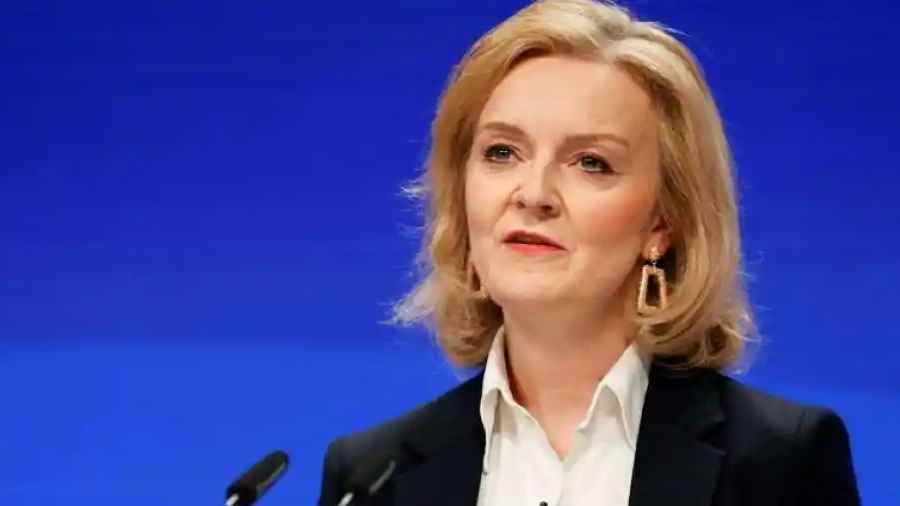Foreign minister Liz Truss, the frontrunner to replace British Prime Minister Boris Johnson, was forced to backtrack on one of her most striking pledges a day after announcing it after a backlash from fellow Conservatives and Opposition parties. In the biggest misstep of her campaign so far, Truss set out plans to save billions of pounds a year in government spending in a change opponents said would require cutting the pay of public sector workers outside of the wealthy south of England.
Truss had said late on Monday she would introduce regional pay boards rather than having a national pay agreement, tailoring pay to the cost of living where people actually work. But on Tuesday, a spokesperson for Truss said: “Our hard-working frontline staff are the bedrock of society and there will be no proposal taken forward on regional pay boards for civil servants or public sector workers.”
The spokesperson said there had been a “wilful misrepresentation of our campaign” and current levels of public sector pay would be maintained. The change in policy came as a poll showed Truss has a smaller lead over her rival Rishi Sunak than previously thought.
Truss is backed by 48 per cent of Conservative Party members compared with 43 per cent for former finance minister Sunak, according to the poll of 807 people by Italian data company Techne, carried out July 19-27. This suggests a much tighter race than a previous poll of Conservative members carried out by YouGov on July 20-21 that showed Truss with a 24-point lead over Sunak.
Truss’s public sector pay plan had faced criticism from the main Opposition party and some Conservative lawmakers. Sunak supporter Ben Houchen, the Conservative mayor of Tees Valley, said he was “speechless” at the proposal. “There is simply no way you can do this without a massive pay cut for 5.5 million people including nurses, police officers and our armed forces outside London,” he said.
Labour’s deputy leader, Angela Rayner, said Truss’s plans showed the Conservative government’s commitment to reducing inequalities between the north and south of Britain “is dead”. Sunak and Truss are competing in a summer tour of hustings around Britain for the votes of about 200,000 Conservative members, who will select the next Prime Minister, with the winner announced on September 5.
Taxes have dominated the race so far. Sunak has accused Truss of being “dishonest” with voters with her promises of major tax cuts as soon as she enters the office. Sunak said he would make sure inflation is under control before cutting taxes, something Truss says would push the country into recession.
Over 60 per cent of Conservative members in the Techne poll said Truss had better ideas on taxes than Sunak, and they also supported her plans to tackle inflation and handle immigratio n. However, respondents said Sunak was more trusted to deliver on Brexit and had better policies on education. John Curtice, a professor of politics at the University of Strathclyde and one of Britain’s leading experts on polling, said on Monday he was not sure the race was over. “We have to bear in mind that since Tory MPs decided that this was the contest between Rishi Sunak and Liz Truss, we have had one, I repeat one, an opinion poll of the people who will actually have a vote,” he told GB News.
Rishi Sunak is closing the gap to catch up with Truss, with only five points separating the two in the latest poll of the Conservative Party members on Tuesday. The data tables for a survey of 807 Conservative members, conducted by Italian public affairs company Techne for a private client and concluded last week, show Sunak at 43 per cent, Truss at 48 per cent while 9 per cent undecided.
It is in sharp contrast to a YouGov survey carried out at the end of the knockout stages last month, which suggested that Truss had a 24-point lead over the 42-year-old British Indian former minister. “It really hasn’t felt to us like Liz was doing as well as the polls have been suggesting. Wherever he goes he is getting really good feedback and an awful lot of people are still making up their minds,” The Times quoted a Sunak campaign source as saying.










